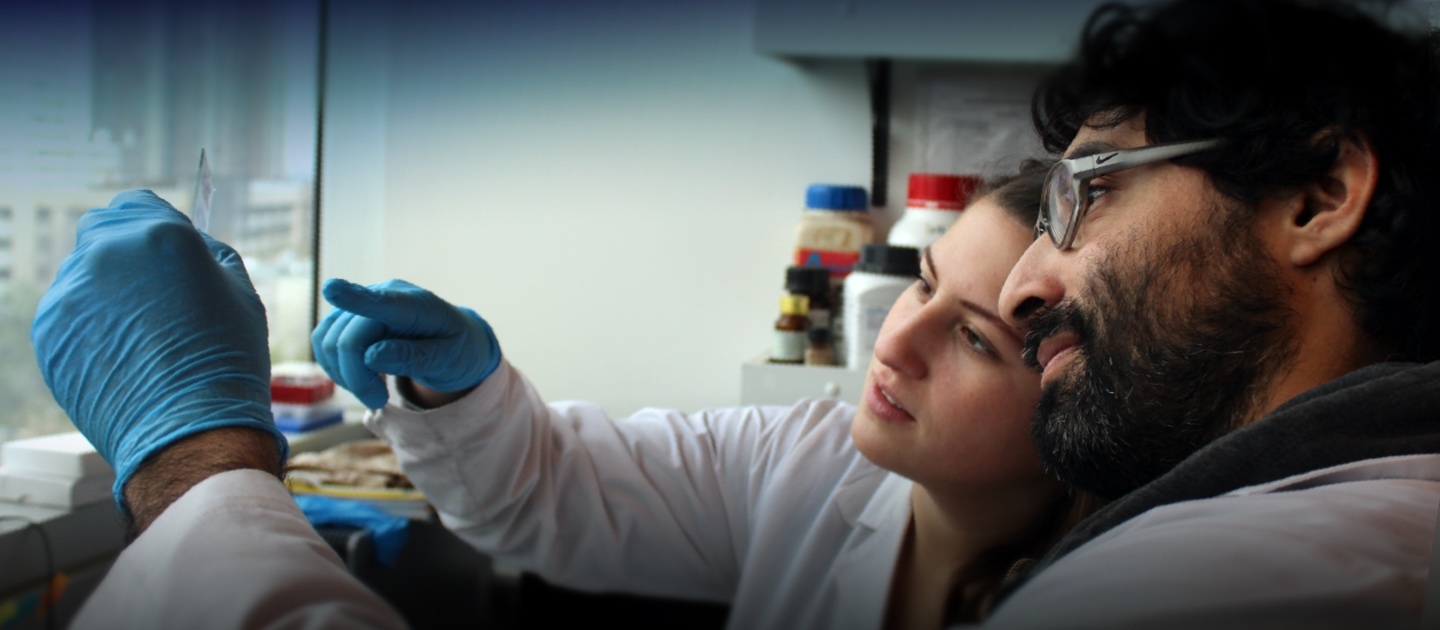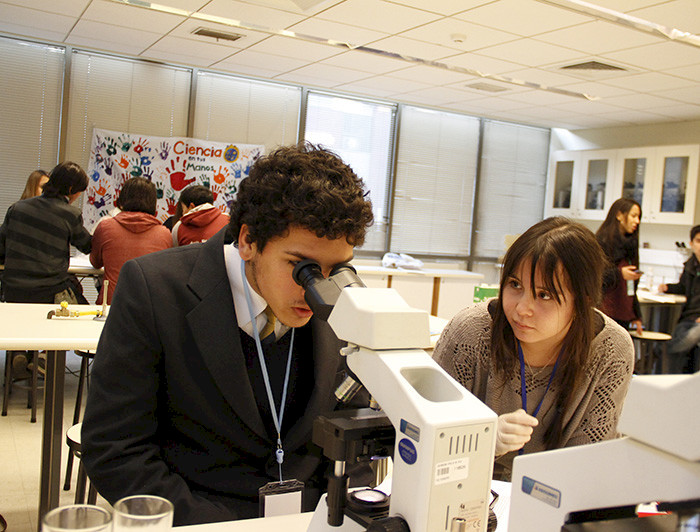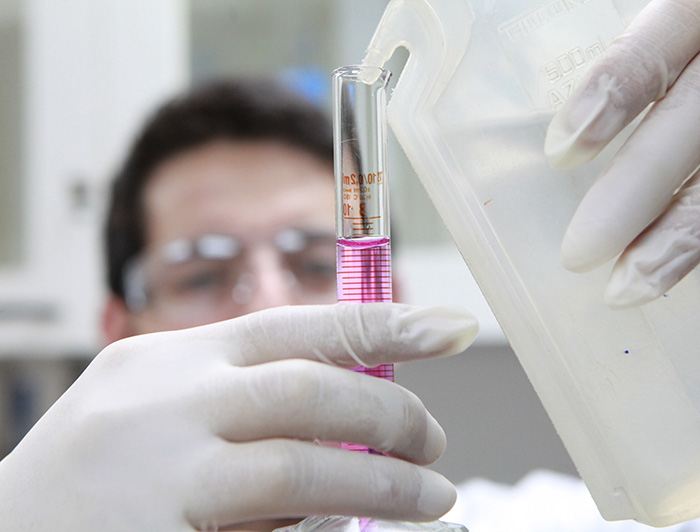
Open Science: The Project That Will Make Research Accessible
The initiative will facilitate access to the knowledge generated at UC Chile to the scientific community of Chile and the world.

photo_camera Open science enables researchers to broadly disseminate their knowledge free of charge and through accessible online platforms that benefit society.
The urgency and impact of the pandemic led several scientific journals to waive their charges and facilitate access to Covid-19 publications.
This helped promote vaccine development and scientific cooperation, which was critical during the early days of the health crisis.
This is a prime example of the importance of “open science” today, a growing movement aimed at making scientific knowledge freely available and accessible for everyone through online platforms.
This is why Universidad Católica is now implementing an innovation project in higher education that will set the foundations for open science in UC Chile.
According to Pedro Bouchon, the Vice President for Research, data is essential in today's world and in order to make decisions of any kind, it is critical to be informed and to have research-based information.
"Having an ‘open science’ project within the university is critical to:
- perform research,
- participate in a globalized world,
- safeguard the correct execution of the projects and the data collected."
One of the positive effects of “open science” is that by sharing both the results and the data used in the studies, scientists can take advantage of them as inputs for the development of new knowledge or the generation of public policies.
"Knowledge ceased to be private and is now public. It is especially important that the evidence is replicable and that today, tomorrow, and in the future, researchers from anywhere in the world can review and re-analyze the data published by our professors," said Provost Guillermo Marshall.
National Effort
UC Chile efforts to facilitate free and open access to research is not something new.
Of the 1,879 university publications reported between 2013 and 2020 in Latin American journals and recorded by the WoS (Web of Science) platform, there are a total of 1,342 that are of open access, equivalent to 71%.
Through initiatives such as the UC Chile Repository of the UC Chile Libraries, the availability of these papers has been promoted for the use of faculty from all over the world. In addition, all UC Chile journals have now open access in the UC Chile Journals Portal.
"The project we are implementing will allow for greater visibility and positioning of scientific research," affirmed Evelyn Didier, director of the UC Chile Office of Libraries.
She added that this implies a paradigm shift in which "knowledge is shared and data is made openly available, to achieve greater levels of progress as a society."
Didier explained that open science also involves sharing data, results and protocols obtained at different stages of the research process.
The objective is to achieve collaboration and scientific communication under the principles known as FAIR (Findability, Accessibility, Interoperability, and Reuse).
The project, being implemented by the UC Chile for a period of two years (which is led by the Office of the Research Vice President and executed by the UC Chile Office of Libraries), involves the generation of an ecosystem that facilitates the integration of research processes and the availability of data. This through a new, open and interconnected portal.
"We want to create a platform so that our faculty can easily submit their data in a format that is transparent and replicable," said Guillermo Marshall.

In addition to the technological infrastructure, an "open science" training plan will be implemented for the academic community and personnel linked to the scientific field.
The project also considers the development of networks and communication channels with other relevant stakeholders in the field of research, both in Chile and abroad.
To achieve this, UC Chile was awarded a budget of $190 million pesos (USD207,000).
International Effort
This will be a joint initiative with the Lucy Family Institute for Data & Society of the University of Notre Dame in the US, in collaboration with Universidad de Aysén.
Open science is increasingly promoted in the Northern Hemisphere.
The European Union has begun to require many research papers to be published openly, after a certain period of time, in order to ensure that the resources invested in science not only benefit the community, but also help to accelerate research and innovation.
That is one of the aims of Horizon Europe, the European Union's framework program for research and innovation for 2021-2027.
In Chile, the National Research and Development Agency (ANID, as per its Spanish acronym) has been promoting open access for several years, through initiatives such as the SciELO Chile Collection.
As explained by Patricia Muñoz, deputy director of Networks, Strategy and Knowledge of ANID:
"For ANID it is key to generate a culture around open science, because:
- it strengthens the democratization of scientific knowledge,
- it provides minimum standards of transparency and accountability for the public,
- and it traces the results obtained with public funds."
She also emphasized that the open access policy "enables the reuse of information and data, deepens cooperation between institutions and increases the quality, impact and reliability of research in the territories."
Today, the state institution is supporting a series of initiatives led by various universities in order to provide open science, through the Innovation in Higher Education (InES, as per its Spanish acronym) projects.
In addition to UC Chile, universities such as Universidad de Talca, Universidad Católica de la Santísima Concepción, Universidad de la Frontera and Universidad de Chile are also receiving funds for this purpose.
"ANID hopes that the executing institutions will be able to generate and install capacities that will allow for the creation of a culture of open access, focusing on knowledge management, with the use of international standards," said Patricia Muñoz. She also highlighted the idea that universities should train professionals, students and faculty in this area.
Science Joins the Digital Transformation
The open science project will involve a great deal of data and information management. For this reason, it will be closely linked to the digitalization that UC Chile is promoting as part of its 20-25 Development Plan.
"This project is absolutely in line with our strategic plan that drives digital transformation within the university," explained Vice President Bouchon.
According to Bouchon, this effort is fully in line with other projects that UC Chile is working on, such as:
- the Office of Data and Information Governance, to ensure timely access to institutional information for the UC Chile community;
- and the new Data Science initiative, an institutional academic project whose mission is to transform the university into a leading institution in the development of intensive research in data and computation.
For Bouchon, a smart country development necessarily requires:
- open science,
- strengthening quality and rigorous research,
- and collaboration with national and international institutions.
"Having this information, systematized and open, is a powerful platform to respond to the multiple challenges we face today, which require a more connected science."


